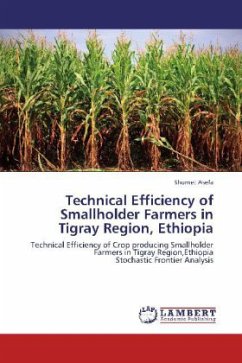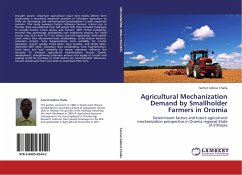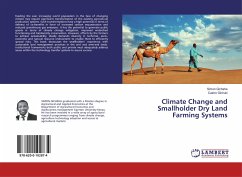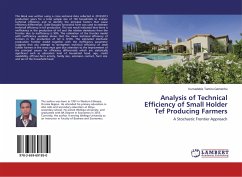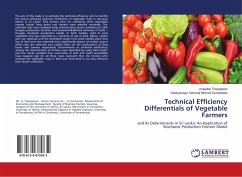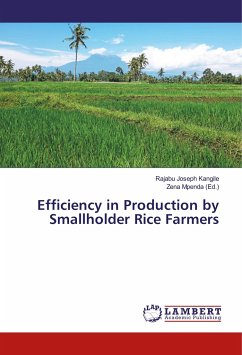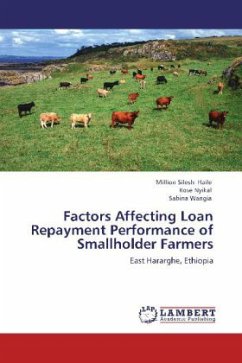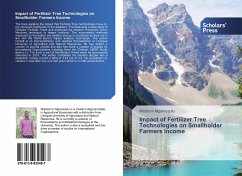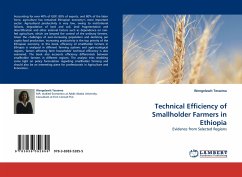
Technical Efficiency of Smallholder Farmers in Ethiopia
Evidence from Selected Regions
Versandkostenfrei!
Versandfertig in 6-10 Tagen
32,99 €
inkl. MwSt.

PAYBACK Punkte
16 °P sammeln!
Accounting for over 40% of GDP, 80% of exports, and 80% of the labor force, agriculture has remained Ethiopian economy s most important sector. Agricultural productivity is very low, owing to institutional failures, degradation of land and soil, land fragmentation and desertification and other external factors such as dependence on rain-fed agriculture, which are beyond the control of the ordinary farmers. Given the challenges of ever-increasing population and declining per capita food production, increasing productivity is the top priority of the Ethiopian economy. In this book, efficiency of...
Accounting for over 40% of GDP, 80% of exports, and 80% of the labor force, agriculture has remained Ethiopian economy s most important sector. Agricultural productivity is very low, owing to institutional failures, degradation of land and soil, land fragmentation and desertification and other external factors such as dependence on rain-fed agriculture, which are beyond the control of the ordinary farmers. Given the challenges of ever-increasing population and declining per capita food production, increasing productivity is the top priority of the Ethiopian economy. In this book, efficiency of smallholder farmers in Ethiopia is analyzed in different farming systems and agro-ecological regions, factors affecting farm households technical efficiency is also examined. The book also accounts efficiency differentials between smallholder farmers in different regions. The analysis tries shedding some light on policy formulation regarding smallholder farming and should also be an interesting piece for professionals in Agriculture and Economics.



